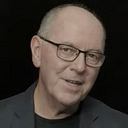Recognizing Australia’s First Nations People and the Evolutionary Potential of The Voice
Introduction
The referendum is an opportunity to Constitutionally recognize the 60,000-year-old culture of the First Nations people of this land. It is a modest first step on a journey that should have started 200 years ago. When Captain Cook entered Sydney Harbor in 1770, he should have carried orders to ensure the settlers found ways to cohabitate with indigenous people peacefully. But he didn’t have such orders, and the integration of white and indigenous people devolved into violent atrocities.
The history of Constitutional evolution is of resistance to change. The act of embracing change is perceived as an audacious step. As Australia stands at the threshold of a historic referendum on October 14, 2023, aimed at recognizing the cultural heritage of its First Nations people, we can perceive the choice between “yes” and “no” signifies more than a mark on a ballot. It reflects our collective vision for the society we strive to cultivate.
The Misconception of Static Outcomes
The simpler path in referenda often tends to be a vote for “no,” seen as a preference for stability and continuity. However, opting for the status quo overlooks the fact that systems, programs, and initiatives — including The Voice — can evolve. A “no” vote mistakenly assumes a static future, thereby perpetuating the illusion of risk associated with change.
The Reality of Risk: A Constructive Perspective
The narrative that this referendum is a gamble distorts the truth. This vote is not about risking societal stability but amending a historical oversight. No real risk exists in acknowledging the world’s oldest continuing culture. The notion of risk is often wielded as a weapon to instill fear, and this is not a referendum driven by fear but by courage.
The Valor in Voting “Yes”
Courage is not the absence of fear but the capacity to act meaningfully despite it. Voting “yes” is an act of bravery that opens the door for a more encompassing Australian society where every individual’s cultural heritage is acknowledged and celebrated.
A Chance to Right Egregious Wrongs
The terrible statistics from Australia’s forgotten war. We shouldn’t ignore that white Australia has benefitted handsomely from the dispossession of First Nations peoples.
Colonial Frontier Massacre Totals
Total Massacres 430
Massacres of Aboriginal or Torres Strait Islander people 415
Massacres of Colonists 13
Massacres of Others 2
Massacres of Aboriginal or Torres Strait Islander people by Colonists 406
Massacres of Colonists by Aboriginal or Torres Strait Islander people 13
Massacres of Aboriginal or Torres Strait Islander people by Aboriginal or Torres Strait Islander people
(These are included as being directly related to frontier conflict, while other indigenous conflicts are not included.)
Colonial Frontier Massacre Victims
Total victims of frontier massacres: 11,356
The Dynamic Role of The Voice
The Aboriginal and Torres Strait Islander Voice aims to function as an autonomous advisory body to the Parliament and Government. A “yes” vote endorses this aim and paves the way for The Voice to evolve beyond its initial framework. It offers the potential for a more democratic, inclusive Australia that continually adapts to the needs and aspirations of its First Nations people.
A Call to Action
This referendum is a clarion call; a summons to rise and be recognized as a person who advocates for an inclusive society. It’s an invitation to vote “yes” not just for the initial proposal of The Voice but also for its potential to evolve, adapt, and serve the ever-changing needs of Australia’s First Nations people and our culturally diverse community.
About the author:
Greg Twemlow, Co-Founder, Future Skills Studio
Greg Twemlow
sharing what I’ve learned from 35 years as a citizen of the world, parent, corporate executive, entrepreneur, and, since 2018, CEO of Future Skills Studio, focused on experiential learning programs.
